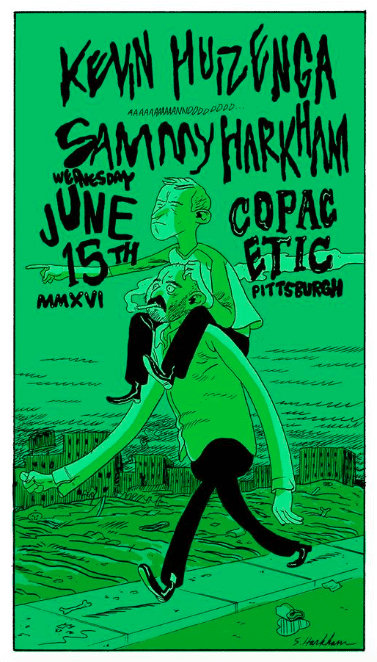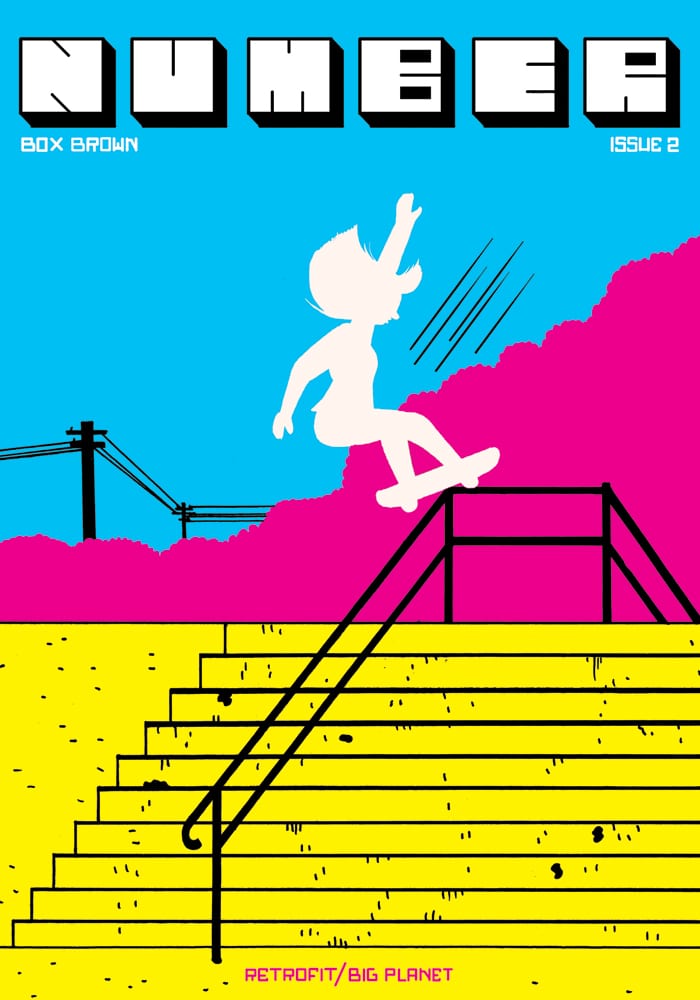Today on the site:
Rob Clough surveys the output of Retrofit Comics.
Retrofit Comics began as a Kickstarter experiment in 2011. By then, comics tended to be printed as minis or graphic novels, leaving Box Brown missing the heyday of the alt-comics comic book. In 2013, he joined forces with the DC-area comics store, Big Planet Comics, which took on a lot of the costs and production work, allowing Brown (and BPC’s Jared Smith) to concentrate on other duties as publisher and tastemaker. This was one of the early examples of a store deciding to publish its own comics.
Overall, the results have been of a fairly high quality, and quite varied in genre and approach. Brown has fairly catholic tastes, ranging from esoteric comics-as-poetry to slice-of-life to big, dumb genre tales. (I imagine Smith has also had some influence on what’s been chosen.) Brown has made it a point to publish work by up-and-coming talents from the world of self-publishing. He’s also published work by veterans like James Kochalka, Steven “Ribs” Weissman, and Matt Madden. He’s reprinted minis from notable young artists like Georgia Webber. Artists from outside the US, like Olivier Schrauwen, Zejian Shen, and Antoine Cossé, have been some of the most notable contributors. Retrofit has also published some of the best work by Josh Bayer, whose work I recently reviewed on my own High-Low blog. Let’s take a closer look at a sampling of works from 2013-2016.
And Frank Young joins us for a review of the novel-about-comics Induction of the Sycophant.
With its rags-to-riches sagas, occasional creative triumphs and dark episodes of mental and artistic deterioration, the story of the American comic book industry is rife with potential for novelists.
Few have tapped this rich source. Fewer have stepped outside the worship of comics to depict the cut-throat, hard-scrabble world of the comics biz. Tiger Moody’s 2015 novelInduction of the Sycophant does that well, and is a valuable addition to the small body of comics literature.
Moody’s book is in good company with Mell Lazarus’ 1965 black-comedy gem, The Boss is Crazy, Too, and Tom De Haven’s Funny Papers (1985) and Derby Dugan’s Depression Funnies (1996). The pious formality of Michael Chabon’s acclaimed book-group staple, The Amazing Adventures of Kavalier and Clay (2000), is nowhere in Moody’s agenda.
Like De Haven’s novels, Moody’s explores the flaws in the comics business model, and how its creators’ inspirations can ripple throughout the industry, even if the artist or writer suffers or is left behind. Like Lazarus, Moody offers a wry insider’s sense of this vivid, limited world. Moody’s is not a humorous novel. There are amusing moments, but the book’s overall tone is New York neo-noir. Moody captures the sense of chilly late-afternoon desperation found in the works of authors John Rechy and Hubert Selby, Jr. and in Robert Wise’s 1959 film Odds Against Tomorrow. The big city, with its bustle and promise, ought to be wonderful… except that it isn’t.
Elsewhere:
New Yorker cartoonist Anatol Kovarsky has passed away. The NYT has an unusually good obituary.
Gil Roth speaks with Glynnis Fawkes about her new comic, Alter Ego.
A perfect combo: Nathan Gelgud cartoons Ed Sanders for the Paris Review.
Here's a list of seven alternative comics from the 1980s, the days when all comics intermingled like muddy creeks.
And if you're in Pittsburgh tonight, go see Sammy and Kevin and celebrate their friendship and their comics. The below flyer is "true" in a profound way.







